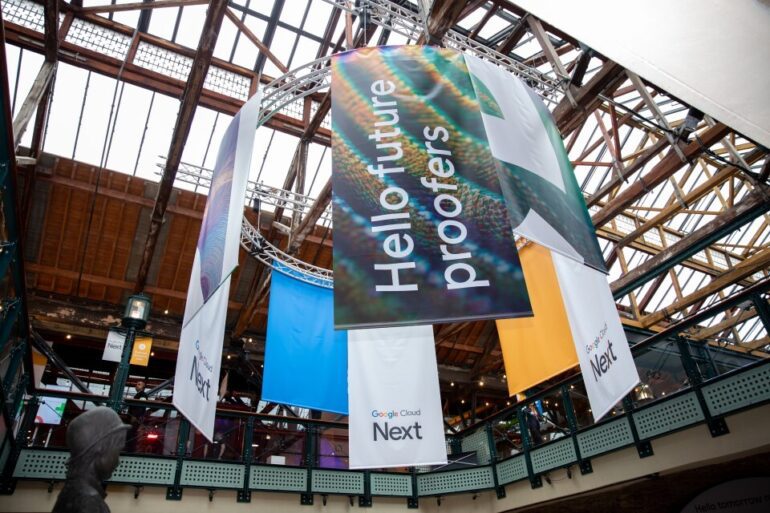TL;DR:
- DSTL and Google Cloud’s collaboration aims to promote responsible AI adoption in the UK defense sector.
- A Large Language Model (LLM) hackathon was held at Google Next, involving 20 teams and over 200 participants.
- Winning prototypes, aligned with MOD’s ethical principles, included LLM-based cyber threat detection and data-driven predictive maintenance.
- The collaboration exemplifies the power of creative problem-solving and collaboration in advancing AI for defense applications.
Main AI News:
In a momentous collaboration, DSTL (Defence Science and Technology Laboratory) and Google Cloud have embarked on a mission to expedite the secure and conscientious integration of artificial intelligence (AI) within the United Kingdom’s defense sector. This strategic partnership took shape with the signing of a Memorandum of Understanding (MOU) in June 2023 and has culminated in the delivery of a groundbreaking Large Language Model (LLM) hackathon, orchestrated under the aegis of the Ministry of Defence’s (MOD) Defence AI Centre (DAIC).
This remarkable event unfolded at Google Next, drawing participants from diverse backgrounds to delve into the vast realm of LLMs and explore their potential benefits and risks within the context of UK defense and security. Over 200 professionals congregated, forming 20 teams guided by Google Cloud AI experts, including DSTL scientists and representatives from the Royal Navy, British Army, Royal Air Force, Space Command, and MOD policy-makers, ethicists, and user researchers.
Over the course of two intensive days, these teams harnessed the cutting-edge generative AI tools provided by Google Cloud to develop innovative, ethically grounded prototypes that would augment the growing trove of AI innovation ideas engendered by the MOU. The judging panel, comprising senior leaders from the HM government and Google’s technology hierarchy, evaluated these prototypes across six distinct categories, from ‘best technical achievement’ to ‘most illuminating failure,’ all with a fundamental focus on alignment with both MOD’s ethical principles for AI and Google’s AI Principles.
The winning prototypes spanned a gamut of applications, from LLM-based cyber security threat detection to LLM-enabled image analysis and data-driven predictive maintenance. These concepts, born from the hackathon crucible, are now under consideration for further refinement and testing, aimed at ensuring their readiness for adoption by the UK Armed Forces.
Andy Bell, Chief Technology Officer at DSTL, shared his perspective on this transformative collaboration: “Dstl and Google Cloud brought together a hugely diverse range of participants on behalf of the MOD’s newly established DAIC, to learn, experiment and solve real-world defence problems with innovative AI technologies. This hackathon has demonstrated how creative problem-solving can be harnessed to address pressing defense challenges, paving the way for breakthroughs in generative AI for defense applications.”
John Abel, Technical Director for Google Cloud, echoed the sentiment, stating, “This hackathon is the first step in delivering on the recent MOU signed between DSTL and Google Cloud, building on clear synergies between the two organizations. The hackathon served as a powerful example of how collaboration can drive innovation and ultimately benefit the wider AI ecosystem. It also provided valuable educational and training opportunities, helping to foster the next generation of AI leaders in defense.”
Conclusion:
DSTL and Google Cloud’s successful Defense AI Hackathon represents a significant step forward in promoting responsible AI integration within the UK defense sector. This collaborative effort demonstrates the potential for innovative solutions to address pressing security challenges, fostering a promising future for AI applications in the defense market.

